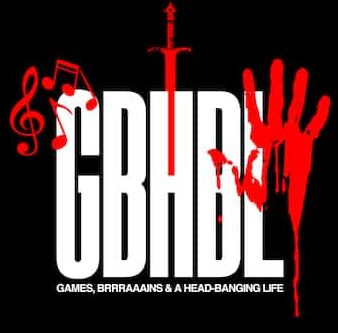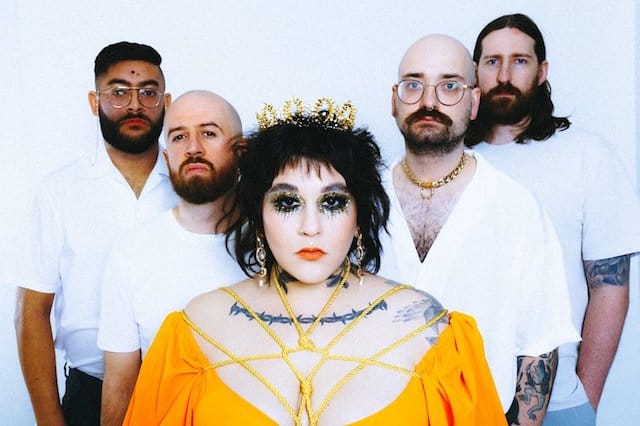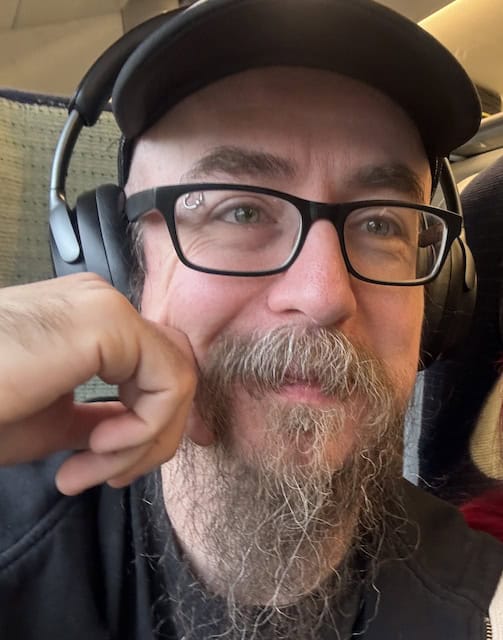Band Interview: Sam Chetan-Welsh (Guitars) of Ithaca
Acclaimed UK metallic hardcore troupe Ithaca returned with their long-awaited second album, They Fear Us, on the 29th of July 2022 via Hassle Records. An album that has been incredibly well received already (read our 10/10 review here) and has helped catapult Ithaca to even greater heights.
The beginning of August 2022 saw them head out on a 6-date UK tour alongside Pupil Slicer and Forlorn. A few hours before the London date of this tour (04/08/22) we sat down with guitarist Sam Chetan-Welsh and talked all things Ithaca. You can read our review of the London show here. Below is a select transcript of the interview and you can listen to the full thing via YouTube, Soundcloud, Spotify or Apple Podcasts.
Right, first things first. How are you feeling?
I’m feeling good, man. I’m feeling, like, a bit nervous, a bit apprehensive, but very excited.
What’s different about this specific time, rather than the event necessarily itself?
I think what this is, is the step up that we’ve made with this record kind of coming to fruition in ways I don’t think we’re quite prepared for, to be honest. We had a really packed show in Manchester last night and we sold out tonight, and I think the reception to the album and how people have responded to it, is way above what we could have possibly imagined. It is a bit daunting and a bit overwhelming, but also absolutely incredible.
Were you aware you’d create something very special with the new album?
Well, yeah, the thing is, you’re sat in the studio and you’re all there for, like, three weeks away from home, and you’re all just kind of living in the same room and going a bit spare and kind of getting on top of each other and things get really weird, as you can imagine. Particularly towards the end, we were all starting to really crack up and we listened to it all the way through before it had been mixed and we were like, I think this is really good.
We were looking at each other like, yeah, maybe this is pretty good, actually but obviously, you never really know. It’s such a trite thing to save. You never know until it goes out into the world, because it’s one thing that people enjoy. Like, we knew the riffs were decent and it was a good, fun album, but it’s also that people are responding to all the themes and the look and they say and all the other stuff that we really put thought into, people have really responded to as well, which has been amazing.
Take us back then to the original vision. So, when you set out to create what you’ve done here, what was your thinking at the time? And has the end product matched the original vision or what changed along the way?
So when we very first started, I think the only brief we had was bigger, wider, and just like all the tiny things, we started to push. Because I think by our own acknowledgement, when we finished making our record, our previous record, Language of Injury, we felt a bit of caution, a bit of, like, not that we’ve played it safe at all because for the time, we definitely haven’t. But we recorded it, like, two years before it got released for various reasons, like, it came out much later that we wanted.
In the time between the last two records, we all changed a huge amount. We have the pandemic and all of our lives got turned upside down in various different ways and we lost people and huge things happen to us and so we are very different people since then. So, yeah, we just started with bigger and wider and then I think it just got, you could say bigger and wider still as it went on, as we started to be braver, we started to be like, no, we want to represent who we actually are now, rather than feeling like we’re just making music to appeal to the pit.
How much of an effect did the pandemic have, not just the album, but Ithaca overall?
It had a huge effect, I think, because it had some very negative and some positive things. Obviously, we couldn’t play. We were on tour when things locked down, we were in Denmark and they were locking down and it was like, okay, back to the UK then, I guess. And we got here and two weeks later we locked down and that was it.
That was sort of Ithaca shutting up shop, basically, just like every other band. And we had only just really properly started writing around that time. We were really in the back end of the album cycle for the last record. What that did was separate us which was very challenging because before this, we were very like, everything in the room all going to be together, bouncing ideas off each other. So we had to do a bit of upskilling and I, in particular, had to learn a lot more about how to record demos and things which I’d kind of been putting off.
But also, I think the separation and the time, as I say, I, for example, went on a big therapy journey during the pandemic because I had to kind of confront a lot of things that I’ve just been putting to the side, some of which were kind of the traumatic stuff that happened before Language of Injury was recorded.
All of us did a lot of inner work and exploration. Also, I think that’s where some of the braveness came from because being sat on our own, we were just listening to it. We were just absorbing a much wider range of influences. Everything had just been burnt to the ground. So, we were kind of like, why not just try everything? Why not just do whatever we want now? It felt like all the rules had just been torn up kind of immediately.
Would you look the aspect of built bravery as the best positive you could pull out from what has been a universally negative period?
Yeah, definitely. I think for us. So much of what the album is about is about standing in defiance against, to be brutally honest, male power structures that are at the core of the bad things that have happened to all of us in our lives as a result of abuse of male power.
Toxic masculinity, we feel like those things are not only really real concepts but we have been directly impacted by them. That ‘everything being burnt down’ mentality and everyone being like, oh, my God, what do we do now? I think was the moment where, yeah, it felt like the threads were very thin at that point. I’m sure you remember, everything just felt very temporary, like we were just losing people left, right and centre. And there was a spectrum of morbidity in the air during that time. And for me, definitely, and I think for the rest of the guys as well, we all were just like, there is no time to lose. Like, we can’t waste any more time really thinking about what anyone else thinks. What is the most true expression of ourselves that we can make?
What is the album that feels like us? So there’s no point wasting time. Just like, create as you would want to.
What’s London got to do tonight to better what Manchester did?
Okay, so last night in Manchester, a lot of people knew words for stuff, even some of the album tracks, stuff that we hadn’t really pushed as hard. And I think if we get a couple of people in London who can do a bit of decent mic grabbing then we will feel very good, because that’s what you do this for, isn’t it? Like, people engaging with and responding to your music. It’s like, oh, my gosh, no other feeling in the world, is there?
So, you talk about popularity. Talking about an increase in eyes and ears on what you’re doing. What one thing could you potentially point out to why this new set of fans are resonating with your music?
That’s a really good question. It’s hard to say right now because we’re still kind of in the fray of it.
I think, like, some of the messages we’ve been getting on Instagram and Facebook and Twitter and stuff, there’s a lot of people who have just being like, we got one yesterday that was someone who was just like, this album really means a lot to me and it’s really what I needed in my life right now. I mean, I don’t know if this sounds arrogant but this is just what someone said to us.
They were like, this album is what I needed in my life right now. We’ve had a few messages like that since it came out and that is really, like, impossible to put into words how much that means to us, because that really, in some ways, the point. There’s a fundamental optimism to the album, which is about it being possible to heal from your trauma and us like, saying that, yeah, no, we’re not perfect, but all of us have done inner work to really grow, and that can be you as well. The fact that’s landing with people and that people feel like sort of almost looked after by the album or it meets them somewhere or any of that stuff, that’s really incredible.
The future feels not just incredibly bright, it feels blinding. Are you feeling that?
Yeah, now I am a little bit, to be honest. I know this sounds stupid, but I can’t stress to people how much when we were packing the van for this tour, we were so, yeah, back on tour. Same old, same old, like, doing this again. And we have to remember where everything goes. We’re so out of practise with all of this stuff to hear things like, yeah, for tonight to be sold out and things like that, it’s making it very real for me that we have taken a very big step up compared to where we were last time we played here.
We were the main support for Svalbard, and now we’re here headlining our own show and it’s sold out. It suddenly got very real for me that the world is receiving us in a very different way now, and the world is thinking of us, and how people are talking about us is extremely different to what it’s ever been. So I think in terms of your question about the future, obviously we just want to get out on tour. But really, for me, the main reason I do this band, to be honest, just speaking personally, is, like, to give other people who maybe look or feel differently, who might have thought about giving heavy music a go, but maybe don’t know that it’s for them being like, no, it is for you.
Look, we can do it. We’re trying to show you that can do it. You might feel like you’re different or you’re too feminine or you’re too this or whatever, or you’re too brown, but if you stand tall in yourself, if you stand authentically and make the best music you possibly can, that reflects you, it will meet people somewhere and you’ve just got to do it. You know what I mean?
For me, there’s a lot of, like, I’m trying to redistribute power in the scene, you know, what I mean? Like, take it out of a small group of the same looking people or the same kind of people, and just make it more widely accessible. And that’s how I think it will thrive. Not just in terms of people coming to shows, but the art will thrive, the music will thrive if we have different voices speaking, I think. And that is starting to happen with people who are messaging us, as I say, and things like that. So that, I think, is the most mission accomplished in some ways.
Links
Website | Shop Links | Bandcamp | Spotify | Facebook | Instagram | Twitter | Hassle Records




